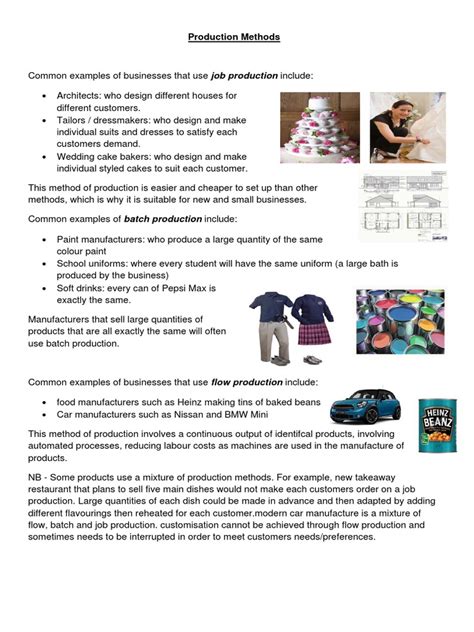In today’s rapidly evolving automotive world, mindful consumption is emerging as a crucial approach for those who seek both sustainability and meaningful experiences. Embracing this concept means making thoughtful decisions that align with a purposeful lifestyle, particularly in how we choose and interact with vehicles. This article delves into the principles of mindful consumption within the automotive sector, highlighting how sustainability can be integrated into every aspect of vehicle ownership. From understanding the environmental impacts of our choices to exploring the benefits of fuel efficiency, electric vehicles, and ethical manufacturing practices, we’ll uncover how mindful decisions lead to a more responsible and fulfilling automotive experience.
Embark on a detailed exploration of this topic with lealhotel.com
1. Understanding Mindful Consumption: Define the concept of mindful consumption and its relevance to the automotive industry.
Mindful consumption refers to the practice of making deliberate and thoughtful choices that reflect our values and promote a sustainable future. It involves being aware of the impact our decisions have on the environment, society, and our personal well-being. In the context of the automotive industry, mindful consumption means selecting vehicles and automotive products that align with principles of sustainability and purposefulness. This approach encourages consumers to consider not only the immediate benefits of their choices but also the long-term effects on the planet and communities.
For the automotive sector, mindful consumption emphasizes reducing environmental footprints, choosing fuel-efficient or electric vehicles, and supporting ethical manufacturing practices. It also includes valuing longevity and durability in vehicle choices, exploring second-hand options, and adopting eco-friendly maintenance practices. By embracing mindful consumption, consumers can contribute to a more sustainable automotive industry and make decisions that are not only practical but also aligned with a commitment to reducing ecological impact and fostering responsible consumption.

2. Environmental Impact: Analyze the environmental benefits of choosing sustainable automotive options.
Choosing sustainable automotive options significantly reduces environmental impact and supports the preservation of natural resources. One of the primary benefits is the reduction of greenhouse gas emissions. Vehicles that are fuel-efficient or powered by alternative energy sources, such as electric or hybrid models, produce fewer emissions compared to traditional gasoline or diesel vehicles. This reduction in emissions contributes to cleaner air and mitigates the effects of climate change.
Additionally, sustainable automotive options often involve the use of recycled or eco-friendly materials in vehicle production, further reducing their environmental footprint. By opting for vehicles made with these materials, consumers support practices that minimize waste and conserve resources.
The shift toward sustainable automotive choices also encourages advancements in green technologies, such as improved battery systems and energy-efficient manufacturing processes. These innovations not only enhance vehicle performance but also promote a circular economy where products are designed to be reused or recycled.
Moreover, selecting vehicles with lower energy consumption and extended durability can decrease the frequency of replacements and repairs, leading to less resource extraction and waste. Overall, embracing sustainable automotive options helps foster a more responsible and envi

3. Fuel Efficiency: Explore the advantages of fuel-efficient vehicles in reducing carbon footprints.
Fuel-efficient vehicles play a crucial role in reducing carbon footprints by optimizing fuel usage and minimizing emissions. These vehicles are designed to travel more miles per gallon of fuel, which directly translates to lower greenhouse gas emissions and reduced consumption of fossil fuels. As a result, they contribute to a decrease in air pollution and a smaller overall carbon footprint compared to less efficient models.
By utilizing advanced engine technologies, aerodynamic designs, and lightweight materials, fuel-efficient vehicles enhance their efficiency without sacrificing performance. This not only reduces the environmental impact but also provides cost savings to consumers through decreased fuel expenses over time.
Moreover, the benefits of fuel efficiency extend beyond individual vehicles. As more consumers opt for fuel-efficient models, the collective reduction in fuel consumption leads to a significant decrease in national and global carbon emissions. This shift supports efforts to combat climate change and promotes a transition towards more sustainable energy practices.
Fuel-efficient vehicles also encourage the development and adoption of innovative technologies, such as hybrid and electric powertrains, which further reduce reliance on fossil fuels. In essence, choosing fuel-efficient vehicles is a proactive step towards a greener future, aligning with mindful consumption principles by minimizing environmental impact and fostering responsible transportation choices.

4. Electric and Hybrid Vehicles: Discuss the role of electric and hybrid vehicles in promoting sustainability.
Electric and hybrid vehicles are pivotal in promoting sustainability due to their reduced environmental impact compared to traditional combustion-engine vehicles. Electric vehicles (EVs) produce zero tailpipe emissions, which significantly lowers air pollution and greenhouse gas emissions. They rely on electricity, which can be generated from renewable sources like wind, solar, or hydro power, further enhancing their environmental benefits.
Hybrid vehicles, which combine an internal combustion engine with an electric motor, offer improved fuel efficiency and lower emissions than conventional vehicles. They use regenerative braking to capture and store energy, reducing overall fuel consumption and extending the vehicle’s range.
Both electric and hybrid vehicles contribute to the reduction of fossil fuel dependency and support a shift towards cleaner energy sources. By incorporating these vehicles into daily life, consumers can make a substantial impact on reducing their carbon footprint and promoting a more sustainable automotive industry.

5. Ethical Manufacturing: Examine the importance of ethical manufacturing practices in the automotive sector.
Ethical manufacturing practices are essential in the automotive sector for promoting sustainability and social responsibility. These practices encompass a range of considerations, including fair labor conditions, responsible sourcing of materials, and reducing environmental impact. By ensuring that workers are paid fair wages, work in safe environments, and are treated with respect, ethical manufacturing supports human rights and fosters a positive impact on communities.
Additionally, responsible sourcing involves selecting materials that are sustainably harvested and minimizing the use of harmful substances. This not only helps preserve natural resources but also reduces the ecological footprint of vehicle production. Implementing processes that minimize waste and energy consumption further contributes to environmental stewardship.
Ethical manufacturing also promotes transparency and accountability within the industry. By choosing vehicles from manufacturers committed to these practices, consumers can support companies that prioritize integrity and environmental care over profit alone. This approach not only enhances the reputation of automotive brands but also encourages industry-wide adoption of sustainable practices. Ultimately, ethical manufacturing aligns with mindful consumption principles, helping to create a more

6. Longevity and Durability: Highlight the value of selecting vehicles known for their longevity and durability.
Selecting vehicles known for their longevity and durability offers significant value in the context of mindful consumption and sustainability. Vehicles with a reputation for lasting many years and enduring extensive use help reduce the frequency of replacements, thereby minimizing resource consumption and waste. This approach aligns with sustainable practices by extending the lifecycle of automotive products and reducing the need for new manufacturing.
Durable vehicles are designed with high-quality materials and robust engineering, which contribute to their ability to withstand wear and tear over time. By investing in such vehicles, consumers can benefit from lower maintenance costs and fewer repairs, which further reduces the environmental impact associated with manufacturing and disposing of automotive parts.
Moreover, a focus on longevity and durability promotes a shift away from the “throwaway culture” prevalent in some industries. It encourages consumers to make thoughtful choices based on the long-term value of a vehicle rather than short-term trends. This not only supports sustainability but also fosters a more responsible approach to vehicle ownership. In essence, choosing vehicles with proven durability helps to conserve resources, reduce environmental impact, and support a mo

7. Second-hand Market: Assess the benefits of purchasing second-hand vehicles as a sustainable option.
Purchasing second-hand vehicles presents a highly sustainable option for mindful consumption by extending the lifecycle of automotive products and reducing the demand for new manufacturing. By choosing pre-owned cars, consumers help decrease the need for raw materials and energy required for new vehicle production, thus lowering overall environmental impact.
Second-hand vehicles contribute to sustainability by minimizing waste and reducing the strain on natural resources. These vehicles have already undergone the initial production phase, which often involves significant resource consumption and emissions. By giving these vehicles a new lease on life, consumers support a circular economy where products are reused and recycled rather than discarded.
Additionally, buying second-hand can be cost-effective, offering significant savings compared to purchasing new vehicles. This affordability makes it easier for more consumers to access sustainable options and make environmentally conscious choices.
Overall, the second-hand market aligns with mindful consumption principles by promoting resource efficiency, reducing waste, and supporting a more sustainable approach to vehicle ownership. This choice not only benefits the environment but also encourages a shift towards more responsible and thoughtful consumption practices.

8. Minimalism in Automotive Choices: Explore the principles of minimalism in making automotive decisions.
Minimalism in automotive choices emphasizes simplicity and purposefulness, focusing on essential features rather than excessive luxuries. This approach aligns with mindful consumption by prioritizing functionality, efficiency, and sustainability over unnecessary additions. Minimalist vehicle choices are guided by the principle of selecting models that meet basic needs effectively without contributing to consumerism-driven excess.
Adopting minimalism in automotive decisions often involves choosing vehicles with streamlined designs and fewer non-essential features, which can lead to lower production costs and reduced environmental impact. Vehicles designed with simplicity in mind typically use fewer resources in manufacturing and require less maintenance, contributing to a smaller overall ecological footprint.
Minimalism also encourages consumers to consider the long-term value and durability of a vehicle. By focusing on quality and practicality, rather than trends or status symbols, consumers make more thoughtful choices that align with their values and support a sustainable lifestyle.
Moreover, minimalism in automotive choices often includes prioritizing fuel efficiency, reliability, and eco-friendly features. This approach not only reduces waste and resource consumption but also fosters a more intentional and conscious relationship with vehicle ownership. Overall, embracing minimalism in automotive decisions promotes a responsible, sustainable, and fulfilling approach to transportation.

9. Eco-friendly Maintenance: Provide tips for maintaining vehicles in an eco-friendly manner.
Maintaining vehicles in an eco-friendly manner is essential for extending their lifespan and minimizing environmental impact. Here are some key tips for achieving eco-friendly vehicle maintenance:
Regular Maintenance Checks: Keeping up with regular maintenance, such as oil changes and air filter replacements, ensures your vehicle runs efficiently. An efficiently running vehicle consumes less fuel and produces fewer emissions.
Use Eco-Friendly Products: Opt for biodegradable or less harmful cleaning products and lubricants. Avoid products that contain harsh chemicals which can be damaging to the environment.
Proper Tire Care: Maintain correct tire pressure and ensure regular alignment. Properly inflated tires improve fuel efficiency and reduce tire wear, minimizing waste.
Conserve Fuel: Adopt driving habits that conserve fuel, such as smooth acceleration and braking, reducing idling time, and avoiding excessive speeds.
Recycle and Dispose Responsibly: Recycle old parts, such as batteries and tires, through designated recycling programs. Proper disposal of automotive fluids prevents environmental contamination.
Reduce Vehicle Weight: Remove unnecessary items from your vehicle to reduce weight and improve fuel efficiency.
By following these eco-friendly m

10. Future Trends: Predict future trends in the automotive industry that align with mindful consumption princip
Future trends in the automotive industry are expected to increasingly align with the principles of mindful consumption, focusing on sustainability, efficiency, and responsibility. One major trend is the rise of advanced electric and hybrid vehicles, driven by continued improvements in battery technology and charging infrastructure. These vehicles will become more affordable and accessible, further promoting a shift away from fossil fuels.
Another trend is the integration of sustainable materials in vehicle production. Automakers are exploring the use of recycled and biodegradable materials, as well as reducing the environmental impact of manufacturing processes. This shift aims to minimize waste and resource consumption.
Additionally, the development of autonomous driving technology will likely lead to more efficient use of resources. Autonomous vehicles can optimize driving patterns, reduce fuel consumption, and enhance vehicle-sharing programs, which can decrease the overall number of vehicles on the road.
The growth of vehicle-to-grid (V2G) technology is also anticipated. This innovation allows electric vehicles to return stored energy to the grid, supporting renewable energy sources and stabilizing energy supply.
Finally, increased consumer awareness and demand for transparency will drive automakers to adopt more ethical and sustainable practices, ensuring that vehicles are produced and maintained with minimal environmental impact. These trends reflect a broader commitment to mindful consumption in the automotive industry.

Embracing mindful consumption in the automotive world is essential for fostering a more sustainable and responsible approach to transportation. By making informed choices—whether opting for fuel-efficient, electric, or hybrid vehicles, supporting ethical manufacturing practices, or exploring the second-hand market—consumers can significantly reduce their environmental impact. Integrating minimalism and eco-friendly maintenance practices further enhances these benefits. As the automotive industry evolves with new technologies and trends, aligning with mindful consumption principles will continue to play a crucial role in pro
lealhotel.com